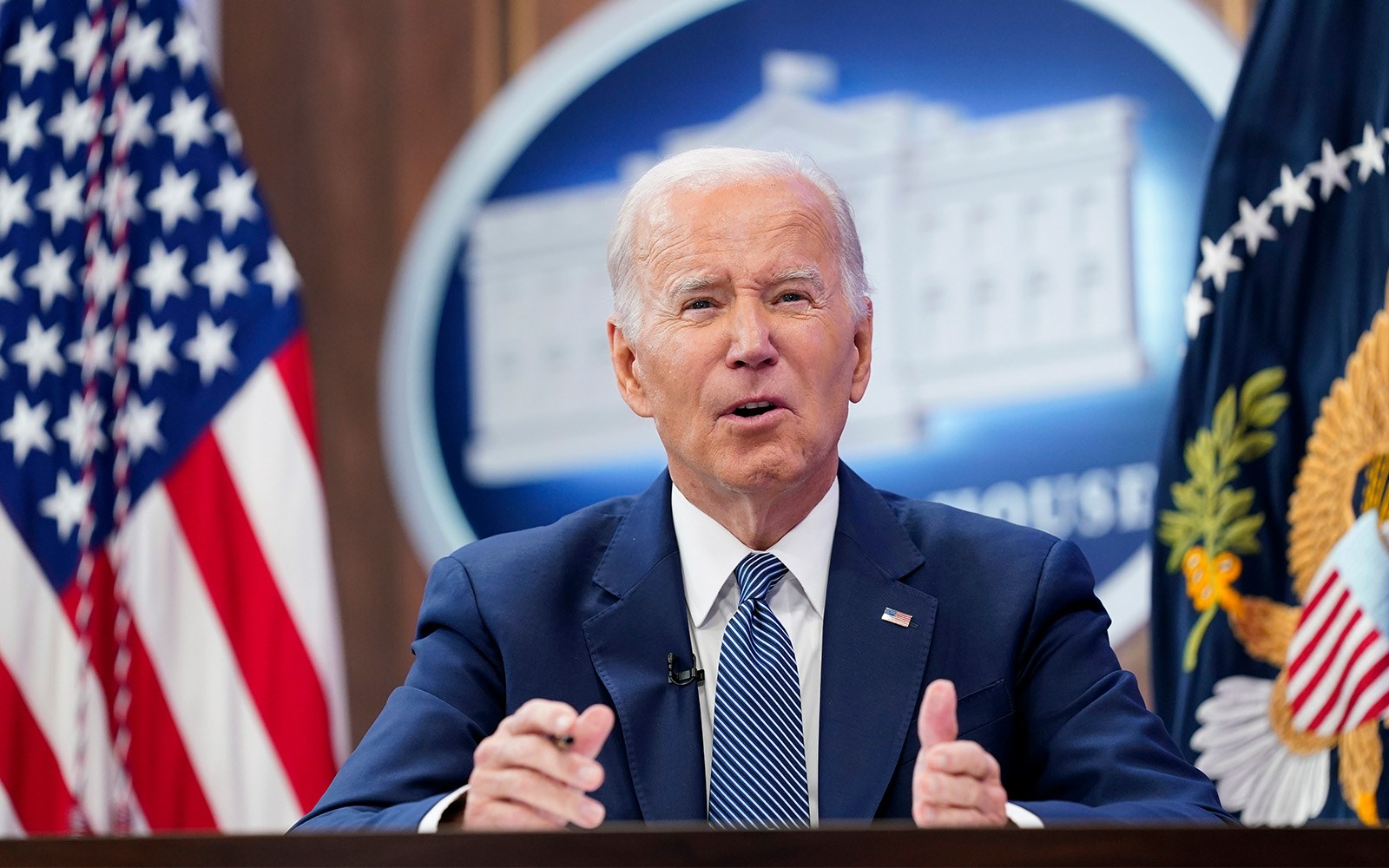Biden threatens KSA with 'consequences' over OPEC oil output cut
US President Joe Biden believes that the United States' relationship with Saudi Arabia should be reconsidered in light of OPEC+'s decision to reduce oil production.
-

US President Joe Biden speaks at the White House complex in Washington, October 11, 2022. (AP)
US President Joe Biden threatened Saudi Arabia with "consequences" after a coalition led by Riyadh agreed with Russia to cut output.
Last week, the 13-nation OPEC+ and its 10 allies infuriated the White House by resolving to cut output by two million barrels per day beginning in November, fueling fears that oil prices may spike.
"I'm not going to get into what I'd consider and what I have in mind. But there will be -- there will be consequences," he told CNN.
Biden would not specify which choices were being evaluated, although the White House had previously stated that Biden was reassessing connections between allies.
"I think the president's been very clear that this is a relationship that we need to continue to re-evaluate, that we need to be willing to revisit," National Security Council spokesman John Kirby told CNN.
"Certainly in light of the OPEC decision, I think that's where he is."
Read next: OPEC+ to cut oil production by 2mln barrels per day
Since Biden visited Saudi Arabia in July and met with Crown Prince Mohammed bin Salman, despite threatening to make the Kingdom an international "pariah" following the murder of journalist Jamal Khashoggi, the OPEC move was generally viewed as a diplomatic slap in the face.
It also comes at a critical time for Biden's Democratic Party, as it prepares for midterm elections in November, with rising consumer costs a prominent Republican talking point.
Saudi Arabia has justified the proposed output cuts by arguing that the "objective of OPEC+ is to keep a sustainable oil market."
Read next: Two 'once pariah, not anymore' Saudi delegations to visit US
Saudi Foreign Minister Prince Faisal bin Farhan told Al-Arabiya channel on Tuesday that the move "was purely economic and was taken unanimously by the (organization's) member states."
"OPEC+ members acted responsibly and took the appropriate decision," he said.
Kirby added that Biden was "willing to work with Congress to think through what that relationship (with Saudi Arabia) ought to look like going forward," although he clarified that no formal discussions had yet begun.
'They chose Russia'
"The United States must immediately freeze all aspects of our cooperation with Saudi Arabia, including any arms sales and security cooperation beyond what is absolutely necessary to defend US personnel and interests," US Senator Bob Menendez said.
"As chairman of the Senate Foreign Relations Committee, I will not greenlight any cooperation with Riyadh until the kingdom reassesses its position with respect to the war in Ukraine."
Menendez's call for a freeze on arms sales has the support of several fellow Democratic lawmakers, including Connecticut's Senator Chris Murphy.
"For years we have looked the other way as Saudi Arabia has chopped up journalists, has engaged in massive political repression, for one reason: we wanted to know that when the chips were down, when there was a global crisis, that the Saudis would choose us instead of Russia," he said.
"Well, they didn't. They chose Russia."
OPEC+ decision to cut production 'shortsighted': Biden
This comes after US President Joe Biden expressed disappointment on October 5 in the OPEC+ alliance's "shortsighted decision" to cut oil production against the background of supply issues, according to Jake Sullivan, National Security Advisor, and Brian Deese, National Economic Council Director.
"The President is disappointed by the shortsighted decision by OPEC+ to cut production quotas while the global economy is dealing with the continued negative impact of Putin’s invasion of Ukraine. At a time when maintaining a global supply of energy is of paramount importance, this decision will have the most negative impact on lower- and middle-income countries that are already reeling from elevated energy prices," the two officials said in a joint statement.
Biden's administration, in response, plans to work with the US Congress to reduce OPEC's influence on global energy prices, Sullivan said.
"In light of today’s action, the Biden Administration will also consult with Congress on additional tools and authorities to reduce OPEC's control over energy prices," the officials said in a joint statement.
In a related context, US President Joe Biden admitted on Tuesday that a "slight" recession was possible as a result of a downbeat IMF economic outlook, increasing inflation, and uncertainty following Russia's invasion of Ukraine.
"I don't think there will be a recession," Biden told CNN. "If it is, it'll be a very slight recession. That is, we’ll move down slightly."

 5 Min Read
5 Min Read








